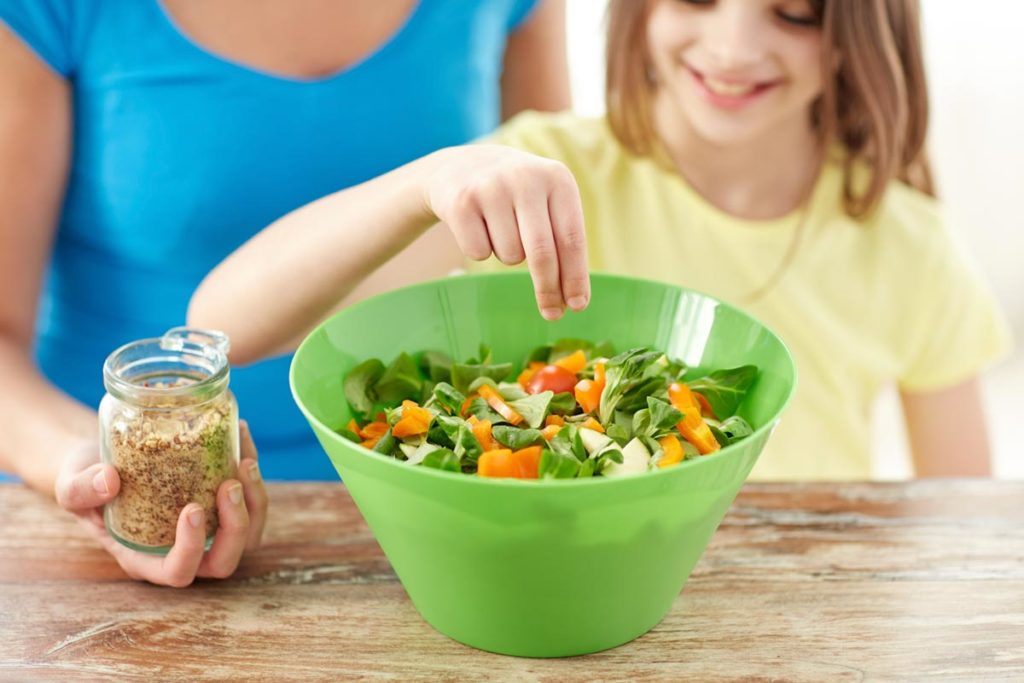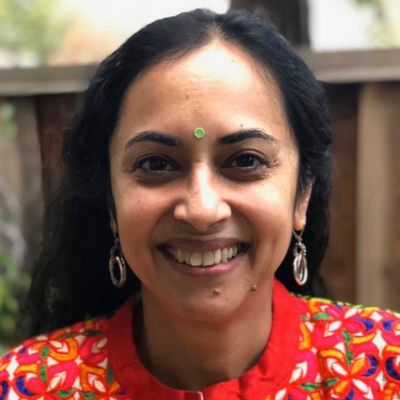
Natural healing and Prakriti: your Ayurvedic Constitution
Consider a startup company. There are creative people who generate wonderful ideas, others who are able to organize these to lead the startup and yet others fulfil the role of maintaining and keeping the company going. Everyone has their role to play in its success!
According to Ayurveda, the ‘science of life’, these attributes and tendencies in people are governed by energy principals called Doshas. Learning more about yourself empowers you to make optimal lifestyle choices that support your health and wellbeing. It enables you to live life to your fullest potential, the ultimate goal in Ayurveda.
Ayurveda is a 5,000 year old ‘science of life’ that focuses on prevention, individualized, lifestyle medicine – all relatively new frontiers in modern medicine. Ayurveda also addresses disease management through holistic and natural healing. It is a form of medicine in India and CAM (complementary and alternative medicine) in the US.

A typical Ayurvedic consultation
10-year-old Jordan arrives for an Ayurvedic consultation with his Mom, who completed a detailed intake form. Some of the form is much like in any regular doctor’s office, but with additional details about his diet and lifestyle. The practitioner makes Jordan comfortable, explains the Ayurvedic process in an age-appropriate manner, and reviews his history, partly with him, and partly with Mom. They ask for permission to examine his pulse, tongue, nails and skin. The consultation is one hour long. A follow-up is scheduled for a few months later.
Over the course of the next few months, Jordan follows a wellness plan with Mom’s help. In time, a number of chronic conditions in his health are transformed: his asthma is downgraded from severe to mild, and his anxiety reduces. His diet improves, he sleeps better and becomes more confident. Besides making more friends, his participation in school and other activities improves.
With any client, Ayurvedic professionals provide personalized healthcare plans because there is no concept of one-size-fits-all solutions. Unique protocols are designed based on health history, physical, psychological, physiological and genetic make-up. An Ayurvedic assessment is undertaken to determine the Ayurvedic Constitution (Prakriti) and imbalances (Vikriti) of the client. This knowledge empowers wellness seekers in turn to attain better health with long term shifts in their lifestyle.
Doshas, constitution, imbalances… and a healthcare plan
Every healthcare plan in Ayurveda begins with a Prakriti evaluation, which requires clinical knowledge of the Doshas. According to Ayurveda everything in nature including humans is a combination of three Doshas (Tridosha) or energy principals.
These Doshas are formed from the five great elements, Panchamahabhutas; ether, air, fire, water and earth.



DOSHA:
Vata
ELEMENTS:
Air and Ether
ENERGY OF:
Movement
DOSHA:
Pitta
ELEMENTS:
Fire and Water
ENERGY OF:
Transformation
DOSHA:
Kapha
ELEMENTS:
Water and Earth
ENERGY OF:
Cohesion
Your Ayurvedic constitution or Prakriti is your natural, healthy state. It is determined at the time of conception and doesn’t change. Everyone has all Doshas, but Prakriti, formed through a combination of these energy principals has one or two dominating and is sometimes, a balance of all three.
There are these types of Ayurvedic constitutions (where two Doshas are involved either could dominate),
- Vata
- Pitta
- Kapha
- Vata-Pitta
- Kapha-Pitta
- Vata-Kapha
- Vata-Pitta-Kapha
Prakriti governs your structure, function, affinities, tendencies and susceptibility to diseases.
Prakriti and Vikriti aren’t always identical. In Jordan’s case, he has a Vata Prakriti, but that is not what causes his imbalances. He also has a Vata Vikriti, which leads to allergies, asthma and anxiety. He is dyslexic and is in speech therapy.
You don’t stay in your natural state of health due to lifestyle choices, diet, environmental factors, stress levels, genetic propensity, diseases, age, stages of life, seasons and even the time of day! These imbalances are called Vikritis and are assessed by Practitioners through a Trividha Pariksha or three fold examination (observation, questioning and touch which includes Nadi Pariksha or pulse assessment). Based on this assessment of both Prakriti and Vikriti, a healthcare plan is provided.
An Ayurvedic health care plan could be a combination of:
- Shamana – herbal formulations, lifestyle and dietary changes
- Shodhana – cleansing therapies like Panchakarma
- A long term plan for prevention and self-care in which self awareness of your Prakriti empowers you to make supportive choices
Jordan is advised to follow a routine, get enough sleep, eat warm, unctuous food at regular meal timings and hydrate adequately, favor warming spices and the sweet, sour and salty tastes in his diet (while minimizing bitter, pungent and astringent tastes). A great deal of emphasis is placed on sleeping enough and not overdoing exercise – or anything for that matter – because he is easily depleted. He starts doing some strengthening, grounding yoga, abdominal breathing and meditation.
He is also recommended an herbal formulation called Indukantham Kwatham, which is very powerful for Vata management. It can support the liver and help with allergies, the respiratory system and digestion, and improves overall strength and immunity. He is also given Saraswat Arishtam and Brahmi, both of which are supportive to his brain function. When his immunity is low, he tends to get outbreaks of herpes. The general protocol enhances his immunity, and he takes Mahasudarshan Churan as needed to give it a greater boost. Jordan is allergic to dairy, so a number of ghee-based formulations for ingestion or topical application cannot be administered, but Ayurveda has thousands of formulations to choose from. Over time with this protocol, the herpes outbreaks reduce in duration, intensity and frequency. His speech gets clearer and he exits speech therapy. He is now ready to integrate back into a regular school from a school for dyslexic children.

Ayurvedic intervention: will a self-assessment suffice?
Jordan’s Mom reads a number of Ayurveda books. She ponders about nutrition and lifestyle pertaining to different Doshas. She believes Jordan is Kapha because of his loving, gentle nature and ends up feeding him light, bitter, astringent and pungent food (as classified in the Shadrasa) which is absolutely not what a Vata person needs. They need heavier, grounding, unctuous food that is sour, sweet and salty in taste! She also pushes him to exercise vigorously as recommended for Kaphas, when in fact he needs more rest, strengthening and grounding exercise.
An Ayurvedic professional does not deal with disparate diseases like asthma or PCOD. They work to improve the overall health of the wellness seeker based on a vast skill set of learning and experience. The first step of this process – the Prakriti evaluation – is not as simple as the online dosha quizzes might make it appear.
Can you base your healthcare plan on reading and doing an online quiz? While it’s highly encouraged that everyone learn Ayurveda, as this can empower your health overall, there are a few reasons why light study and free resources may not support you enough in creating a health protocol.
- A Dosha quiz evaluates Prakriti only, and your constitution never changes – It’s easy to get confused between Prakriti and Vikriti. We’ve clarified the difference above, though it can take time to sink in! Without this understanding, you might assume that your Ayurvedic constitution is changing, when in fact imbalances vary. For example, someone who is overweight, which is a Kapha tendency, may very well be Vata Prakriti with a Kapha Vikriti.
- The big picture – Sometimes, in a simple evaluation you tend to over or underestimate yourself and miss the big picture. A perception about yourself may not be objective! Having an outside opinion provides helpful neutrality.
- Constitution, natural changes or diseases? What is the original Prakriti? Factors like a chronic disease or stage of life, menopause, natural degenerative changes or the impact of where one lives can affect your perception of Prakriti. For instance, younger people tend to be naturally Pitta and people in dry places tend to have Vata imbalances. The assessment has to factor in these changes.
- Assessing imbalances – Prakriti is only half the picture, and since the Dosha quiz doesn’t evaluate imbalances, you need professional assistance. Consider this; there are 20 types of Prameha (which can be likened with diabetes) and not all are Kapha conditions! Assessing imbalances and stages of pathogenesis is complex and involves knowledge of Doshas, sub-Doshas, Dhatus (tissues), Malas(excretion) and Srotas(channels).
- A healthcare plan – How do you arrive at a healthcare plan? Both prevention and disease management protocols come from a trained assessment that only an experienced professional can provide.
Jordan’s Mom isn’t able to figure out the difference between an inherent constitution or imbalance. She doesn’t see the telltale signs of allergies, constipation, restlessness and anxiety as Vata aggravation. In fact, many people believe that allergies are solely because of Kapha imbalance, and that is not true! She starts giving Jordan Triphala – a commonly known digestive formulation for constipation. Triphala pacifies Pitta-Kapha, and over time, can be drying for Vata, so this isn’t a good idea for Jordan with his Vata aggravation. Jordan’s sibling Kiana has a Vata Prakriti too, with a Vata-Pitta Vikriti that Mom believes is their constitution. She tries to give them Ashwagandha for insomnia which is really hard for Kiana to digest.
Ayurveda is individualized, and that includes how herbs and supplements are recommended. While Mom is well meaning, her doling out herbal supplements based on product labels and internet articles can unfortunately lead to improper use of these ingredients, and that can worsen her children’s conditions.There are also stages of diseases to consider in therapeutics, and a trained Ayurvedic professional equips them to consider all of the needed factors. In Kiana’s case, there are Ama (toxins) that need to be addressed first. Kiana follows a systematic protocol advised by a Vaidya and in time does a Panchakarma detoxification program, which helps not only with insomnia, but also to alleviate anxiety and chronic hyperacidity. Professional Ayurvedic care over time helps Jordan’s entire family to regain health and balance.

The Ayurvedic journey: holistic transformation and natural health
Are you ready to embark on an Ayurvedic journey? Setting up a consultation with one of our experienced Vaidyas with years of clinical expertise would help you understand yourself, your imbalances, prevent and manage diseases and work on long term health goals.
Ayurveda defines health as a state of equilibrium of the Doshas (energy principals), Agni (digestive and metabolic fire), Dhatus (tissues), Malas (excretion) and homoeostasis involving a blissful state of spirit, sense organs and mind. When you strive to attain holistic equilibrium at all these levels, you heal at a deep, enduring level. Through an Ayurvedic assessment and protocol, you balance Doshas that are out of whack, learn about your inherent Prakriti and work on prevention and disease management based on an analysis of root causes, rather than symptomatic relief. You learn what food, exercise, sleep, work and relationships suit you, and what to adopt or discard to attain your natural state or homeostasis.
Jordan’s family learns how staying healthy requires effort from everyone! His sister Kiana has also gone through a round of Ayurvedic management which helps her cope with insomnia, anxiety and hyperacidity while at college. Mom and Dad go through their own assessments, become more self-aware and are empowered to manage everyone’s health, something that started with an attempt to resolve Jordan’s chronic condition! Mom is cognizant of Jordan’s Vata tendencies and reminds him when to rest and stay on schedule, and cooks suitable food for him. Modifications in everyone’s diet and lifestyle renders the entire family healthier!
Knowledge of the self is the path to avoiding diseases, living life to the fullest and promoting longevity…As one person heals, people around them and nature heals.
Lokah Samastah Sukhino Bhavantu
May all beings everywhere be happy.
About the author
-

Anuradha “Anu” Gupta is a NAMACB Certified Ayurvedic Practitioner, Engineer, MBA, Meditator, Writer, 200hr Yoga Teacher and Ayurvedic Doctor. She serves as Guest Faculty Member, Content Specialist and AP Mentor at at Kerala Ayurveda Academy & Wellness Center. She also runs her own Ayurvedic practice, Ayurvedic Footprints.
Anu has an extensive corporate background. She worked for...

